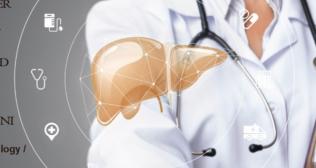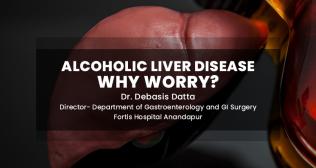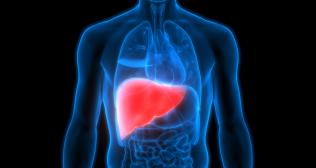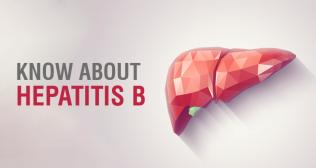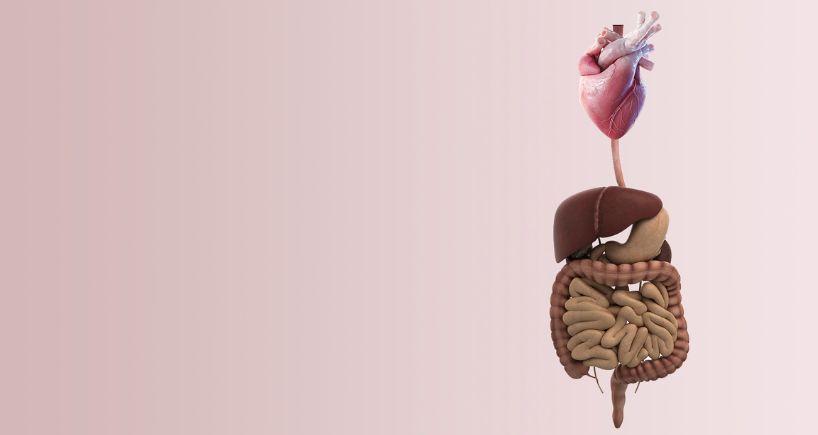
The Surprising Connection Between Gut Health and Heart Conditions
Introduction
Heart conditions, or cardiac diseases, are considered one of the leading causes of disability and mortality worldwide. Risk factors contributing to the development of heart diseases include obesity, type 2 diabetes, hypertension, and metabolic syndrome. Recent evidence suggests that gut health plays a significant role in cardiovascular conditions. Microbial sequencing has helped identify specific gut bacteria associated with heart diseases, revealing important connections between their function and heart health.
What is Gut Health?
Gut health refers to the balance and function of bacteria and other microorganisms, collectively known as the gut microbiota, in the digestive system. The gut microbiota is considered healthy when there is a balance between good and bad bacteria in the digestive system. The human gut contains trillions of naturally residing microorganisms, including bacteria, fungi, viruses, and archaea. Each microbe plays a unique role in maintaining our health. The gut microbiota participates in essential functions, including:
- Digestion and nutrient absorption: Breaking down complex carbohydrates into simpler forms and enhancing the absorption of vitamins and minerals.
- Immune system development: Boosting the immune system’s ability to identify pathogenic microorganisms. Impaired gut health can make the body more susceptible to infections and diseases.
- Synthesis of short-chain fatty acids (SCFAs): SCFAs offer several health benefits, including aiding digestion and possessing anti-inflammatory properties.
- Metabolic regulation: Assisting in the metabolism and processing of glucose, lipids, and proteins. For instance, the gut microbiota reduces the inhibition of lipoprotein lipase activity in adipocytes and positively influences lipid metabolism, indirectly decreasing the risk of cardiac disease.
Another important metabolic role of the gut microbiota is the production of vitamin K and components of vitamin B.
Signs of Poor Gut Health
Stress, poor nutrition, and drug interactions can alter or imbalance the composition of the gut microbiota, leading to difficulties in eliminating toxins and wastes. This imbalance may trigger conditions such as gas, bloating, constipation, diarrhea, joint pain, and inflammation. Additionally, disturbances in gut composition can lead to chronic conditions, including liver and heart diseases.
Association Between Gut Health and Heart Diseases
Although traditional risk factors for heart diseases include family history, cholesterol, and hypertension, the role of gut microbiota has emerged as a contributing factor in the development of heart diseases. Gut microbiota contributes to the pathogenesis of various heart diseases through several biological mechanisms.
One mechanism is observed when the intestinal barrier is compromised. The intestinal mucosal epithelial barrier protects the body from harmful external elements. Lipopolysaccharides, toxins found in the cell walls of gram-negative bacteria, cause inflammation. Under normal conditions, a healthy intestinal barrier prevents these toxins from causing chronic inflammation, resulting in low levels of lipopolysaccharides in healthy individuals. When the barrier becomes compromised and more permeable, lipopolysaccharides can enter the bloodstream, causing inflammation and leading to plaque formation in the arteries, which contributes to atherosclerosis.
Another key factor linked to heart disease is trimethylamine N-oxide (TMAO), a compound produced in the liver from trimethylamine (TMA), which is generated by gut bacteria. High TMAO levels are associated with a higher risk of atherosclerosis and other heart diseases. Diet also contributes to TMAO production. Studies suggest that individuals with high TMAO levels face a greater risk of major cardiovascular events, such as heart attacks and strokes, regardless of other risk factors.
Further research indicates an association between gut microbiota and congestive heart failure (CHF), with qualitative and quantitative differences in the microbiota of CHF patients compared to healthy subjects.
Approaches to Enhance Gut Health for the Prevention of Heart Disease
Eating the right foods can significantly promote gut health and reduce the risk of heart disease and its associated symptoms. Beneficial foods for gut health include:
- Fibre-rich foods: Whole fruits, vegetables, legumes, and nuts.
- Probiotics and fermented foods: Such as yogurt.
- Prebiotic foods: Such as garlic, onions, and oats.
- Polyphenol-rich foods: Such as berries, green tea, and dark chocolate.
- Foods rich in omega-3 fatty acids: Such as nuts, flaxseeds, chia seeds, and fish.
Conclusion
Numerous studies support the connection between gut health and heart conditions. Understanding the intricate mechanisms by which the gut microbiome influences cardiovascular health is crucial for developing effective strategies to prevent and treat heart diseases.
Popular Searches :
Hospitals: Cancer Hospital in Delhi | Best Heart Hospital in Delhi | Hospital in Amritsar | Hospital in Ludhiana | Hospitals in Mohali | Hospital in Faridabad | Hospitals in Gurgaon | Best Hospital in Jaipur | Hospitals in Greater Noida | Hospitals in Noida | Best Kidney Hospital in Kolkata | Best Hospital in Kolkata | Hospitals in Rajajinagar Bangalore | Hospitals in Richmond Road Bangalore | Hospitals in Nagarbhavi Bangalore | Hospital in Kalyan West | Hospitals in Mulund | Best Hospital in India | | Cardiology Hospital in India | Best Cancer Hospital in India | Best Cardiology Hospital in India | Best Oncology Hospital In India | Best Cancer Hospital in Delhi | Best Liver Transplant Hospital in India
Doctors: Dr. Rana Patir | Dr. Rajesh Benny | Dr. Rahul Bhargava | Dr. Jayant Arora | Dr. Anoop Misra | Dr. Manu Tiwari | Dr. Praveer Agarwal | Dr. Arup Ratan Dutta | Dr. Meenakshi Ahuja | Dr. Anoop Jhurani | Dr. Shivaji Basu | Dr. Subhash Jangid | Dr. Atul Mathur | Dr. Gurinder Bedi | Dr. Monika Wadhawan | Dr. Debasis Datta | Dr. Shrinivas Narayan | Dr. Praveen Gupta | Dr. Nitin Jha | Dr. Raghu Nagaraj | Dr. Ashok Seth | Dr. Sandeep Vaishya | Dr. Atul Mishra | Dr. Z S Meharwal | Dr. Ajay Bhalla | Dr. Atul Kumar Mittal | Dr. Arvind Kumar Khurana | Dr. Narayan Hulse | Dr. Samir Parikh | Dr. Amit Javed | Dr. Narayan Banerjee | Dr. Bimlesh Dhar Pandey | Dr. Arghya Chattopadhyay | Dr. G.R. Vijay Kumar | Dr Ashok Gupta | Dr. Gourdas Choudhuri | Dr. Sushrut Singh | Dr. N.C. Krishnamani | Dr. Atampreet Singh | Dr. Vivek Jawali | Dr. Sanjeev Gulati | Dr. Amite Pankaj Aggarwal | Dr. Ajay Kaul | Dr. Sunita Varma | Dr. Manoj Kumar Goel | Dr. R Muralidharan | Dr. Sushmita Roychowdhury | Dr. T.S. MAHANT | Dr. UDIPTA RAY | Dr. Aparna Jaswal | Dr. Ravul Jindal | Dr. Savyasachi Saxena | Dr. Ajay Kumar Kriplani | Dr. Nitesh Rohatgi | Dr. Anupam Jindal |
Specialties: Heart Lung Transplant | Orthopedic | Cardiology Interventional | Obstetrics & Gynaecology | Onco Radiation | Neurosurgery | Interventional Cardiology | Gastroenterologist in Jaipur | Neuro Physician | Gynecologist in Kolkata | Best Neurologist in India | Liver Transfer







